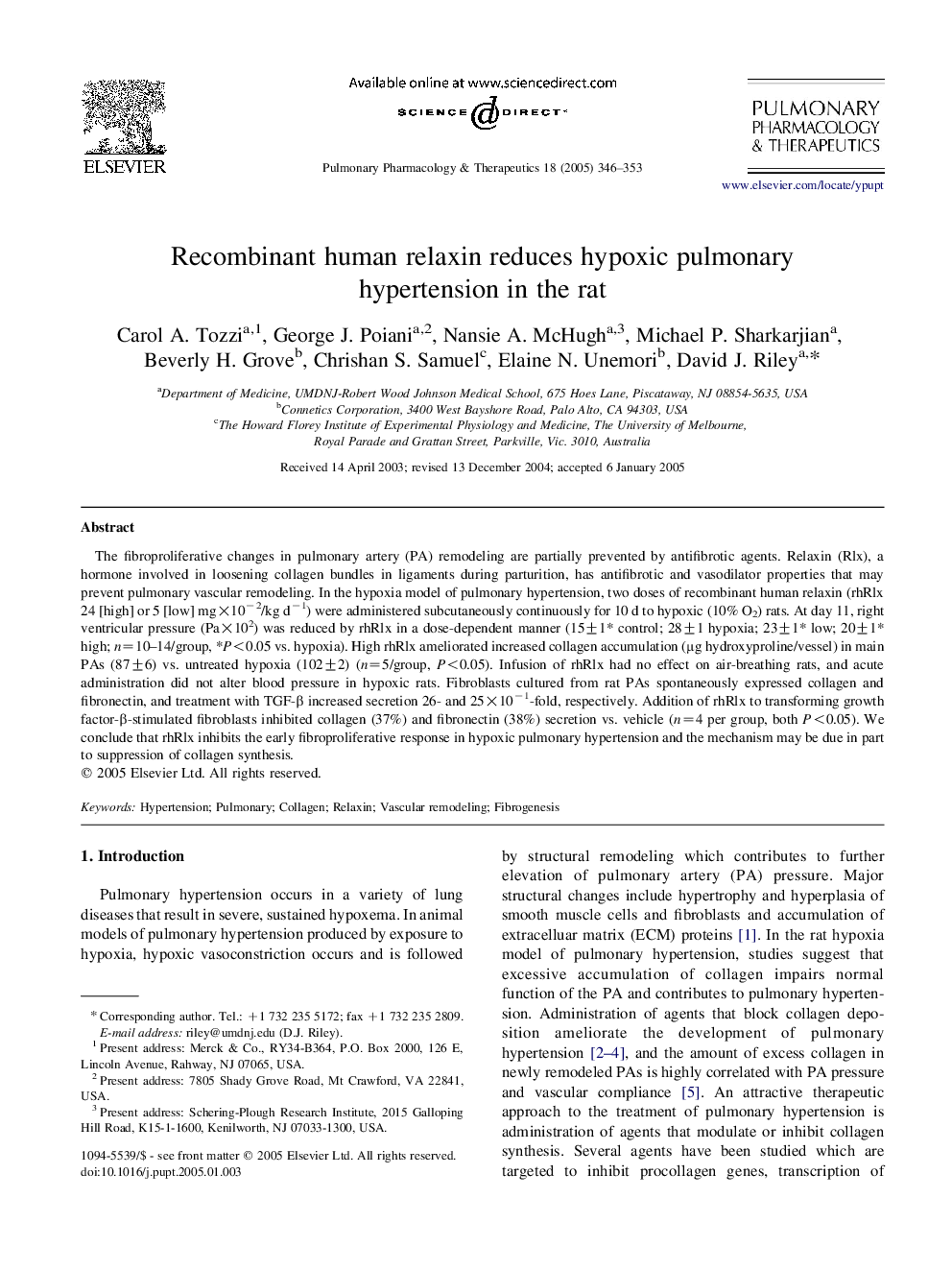| Article ID | Journal | Published Year | Pages | File Type |
|---|---|---|---|---|
| 9017302 | Pulmonary Pharmacology & Therapeutics | 2005 | 8 Pages |
Abstract
The fibroproliferative changes in pulmonary artery (PA) remodeling are partially prevented by antifibrotic agents. Relaxin (Rlx), a hormone involved in loosening collagen bundles in ligaments during parturition, has antifibrotic and vasodilator properties that may prevent pulmonary vascular remodeling. In the hypoxia model of pulmonary hypertension, two doses of recombinant human relaxin (rhRlx 24 [high] or 5 [low] mgÃ10â2/kg dâ1) were administered subcutaneously continuously for 10 d to hypoxic (10% O2) rats. At day 11, right ventricular pressure (PaÃ102) was reduced by rhRlx in a dose-dependent manner (15±1* control; 28±1 hypoxia; 23±1* low; 20±1* high; n=10-14/group, *P<0.05 vs. hypoxia). High rhRlx ameliorated increased collagen accumulation (μg hydroxyproline/vessel) in main PAs (87±6) vs. untreated hypoxia (102±2) (n=5/group, P<0.05). Infusion of rhRlx had no effect on air-breathing rats, and acute administration did not alter blood pressure in hypoxic rats. Fibroblasts cultured from rat PAs spontaneously expressed collagen and fibronectin, and treatment with TGF-β increased secretion 26- and 25Ã10â1-fold, respectively. Addition of rhRlx to transforming growth factor-β-stimulated fibroblasts inhibited collagen (37%) and fibronectin (38%) secretion vs. vehicle (n=4 per group, both P<0.05). We conclude that rhRlx inhibits the early fibroproliferative response in hypoxic pulmonary hypertension and the mechanism may be due in part to suppression of collagen synthesis.
Related Topics
Health Sciences
Medicine and Dentistry
Pulmonary and Respiratory Medicine
Authors
Carol A. Tozzi, George J. Poiani, Nansie A. McHugh, Michael P. Sharkarjian, Beverly H. Grove, Chrishan S. Samuel, Elaine N. Unemori, David J. Riley,
